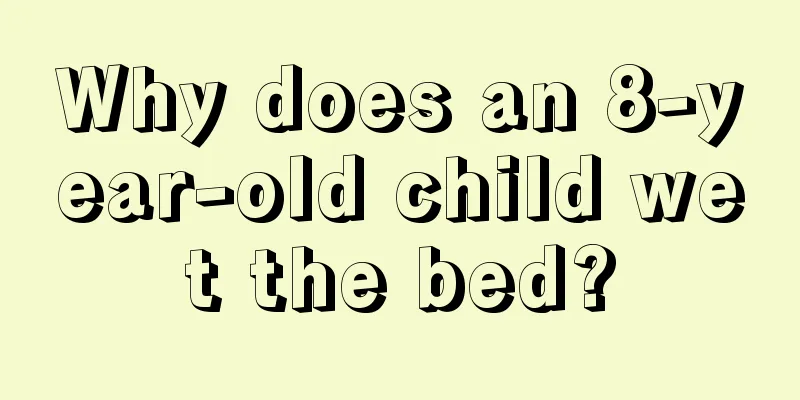Why does an 8-year-old child wet the bed?

|
If an eight-year-old child still wets the bed, it is enuresis. There are many causes of enuresis, which may be related to psychological factors or some diseases. Generally, it is not a big problem. As a parent, you must not beat or scold your child when he or she wets the bed to avoid causing psychological problems for the child. Parents should educate their children in time and slowly correct such problems. Why does an 8-year-old child wet the bed? 1. Genetic factors If both parents of a child have enuresis, the incidence of enuresis in their offspring is 77%. If one of the parents is single, the incidence of enuresis in the offspring is 25%; 2. Psychological factors These include children being too tired or overly excited from playing during the day; strong mental stimulation, such as being frightened; feeling anxious, nervous, or being scolded or even physically punished by their parents after occasionally wetting the bed; 3. Disease and physiological factors Urinary tract infection, kidney disease, local inflammation of the urethra, spina bifida, spinal cord injury, brain dysplasia, small bladder capacity, etc. may all cause enuresis, but enuresis caused by disease accounts for a small proportion; 4. Bad urination habits Parents fail to train their children to develop a good habit of regular urination; 5. The child is sleeping too deeply and is difficult to wake up When there is urine in the bladder, the urge to urinate cannot be communicated to the brain in time during sleep, and the brain cannot issue a command to wake up in time, so some children cannot wake up and urinate consciously at night; 6. Environmental factors Including sudden changes in environment and climate change, such as cold. In addition, children drinking too much water before going to bed can cause bedwetting. There are several types of enuresis: (1) Diurnal and nocturnal urinary frequency: frequent urination at night, often >1 time, accompanied by daytime urinary frequency. The pathological mechanism is the disorder of bladder urination function regulation. (2) Arousal disorder type: Arousal disorder is prominent, and there is no frequent urination during the day. The pathological mechanism is the disorder of nerve conduction function regulation. (3) Nocturnal polyuria: The amount of urine is large at night, but the frequency of bedwetting is not high, and there is no frequent urination during the day. The pathological mechanism is the disorder of nocturnal antidiuretic hormone secretion function. (4) Hybrid Different types of enuresis have different pathological mechanisms, and the treatment of enuresis requires clarifying its cause. |
<<: What to do if your 8-year-old child wets the bed
>>: 8-year-old child with blood in stool
Recommend
Prevention of influenza in children
Autumn and winter are the seasons when influenza ...
What is the reason for the white mark on the child's scar?
After a child's skin is traumatized, it will ...
Hydrocele surgery in children
Hydrocele in children is a disease that many litt...
Why do children suddenly keep blinking?
It is a common phenomenon in life that children b...
How to treat chickenpox symptoms in children?
Because children's body functions are not yet...
The baby's left side is big, which side should he sleep on?
Women need to do a lot of preparation before gett...
7-year-old girl's underwear is a little yellow
Women often have some problems in their bodies, i...
Why do children’s nails turn white? Young mothers must watch
The symptom of white nails may also occur in chil...
Scarlet fever in children
Speaking of scarlet fever in children, many frien...
Two-year-old child has nose bleeding
Every structure or every abnormal condition in ou...
What can’t babies eat after getting stitches? I must eat right from now on.
Babies will need stitches when they have surgery ...
How to correct a child's stuttering?
When parents are taking care of their children, i...
What can children eat to grow taller
In order to make their children grow taller, many...
How old can a baby sit in a stroller?
A baby stroller is a tool for mothers to lighten ...
Reasons why babies often turn over when sleeping
As the saying goes, babies can sleep in various p...









